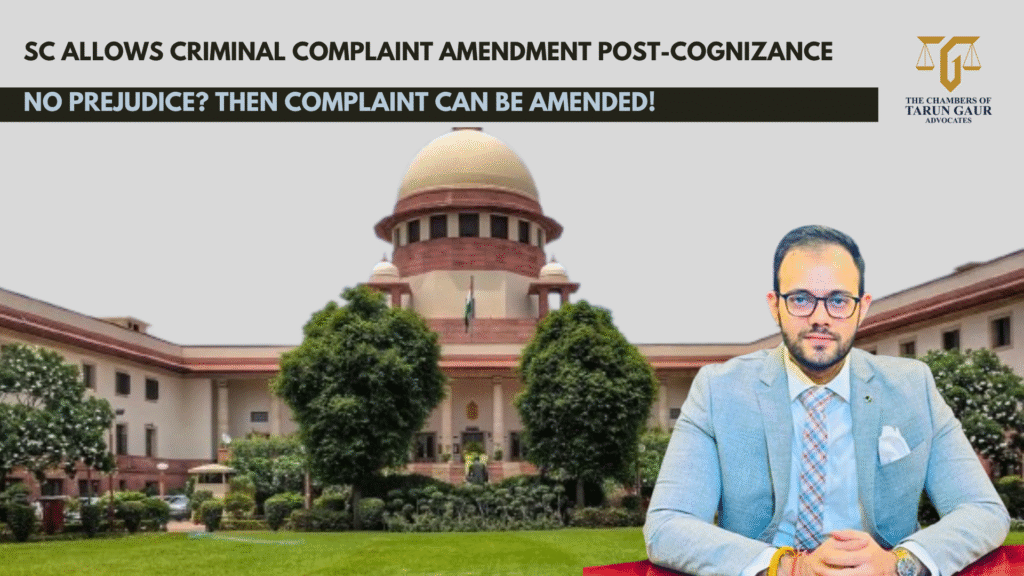In Bansal Milk Chilling Centre v. Rana Milk Food Pvt. Ltd., the Hon’ble Supreme Court allowed an amendment to a criminal complaint under Section 138 of the NI Act even after cognizance had been taken, provided no prejudice was caused to the accused and cross-examination of the complainant was still pending.
🔍 The Case in Brief:
-
The complainant originally mentioned sale of “Desi Ghee (milk products)”.
-
Later, he sought to amend it to “milk”, claiming a typographical error.
-
Trial Court allowed the amendment; High Court reversed it.
-
Supreme Court restored Trial Court’s order, relying on S.R. Sukumar and principles of curable irregularity.
⚖️ Advocate Tarun Gaur’s Critical Analysis:
While the Court’s intention to prevent miscarriage of justice is clear, we must remember that amendment of pleadings is a creature of civil law, codified in the CPC. Criminal jurisprudence deliberately omits such statutory leeway. The concept of amendment under CrPC is not codified — it has evolved solely through judicial precedents.
The Court here draws comparison with amendment of charges under Section 216 CrPC, but that analogy doesn’t sit well. Amending charges (legal framing) is far removed from altering foundational facts in a complaint (factual pleading). Allowing such corrections, even if called ‘typographical’, could risk procedural certainty and open floodgates for broader factual modifications.
Yes, if no prejudice is caused, courts may intervene — but such discretion must be sparingly exercised and, ideally, routed through supervisory jurisdiction i.e. via the High Court’s inherent jurisdiction under Section 482 CrPC, not trial courts acting without clear statutory mandate.
If you’re facing trial under Section 138 NI Act or wish to challenge a criminal complaint, consult Advocate Tarun Gaur — Best Advocate in Dwarka, with expertise in criminal litigation and strategic remedies under CrPC 482.

